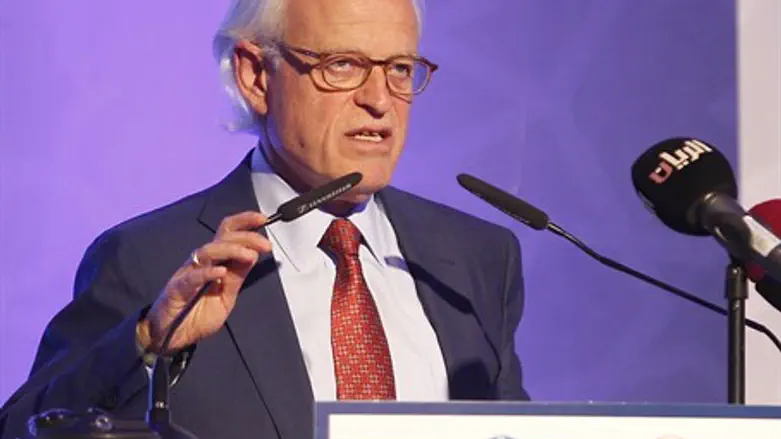
A senior Israeli official has accused U.S. mediator Martin Indyk of “hypocrisy” in the wake of his comments blaming Israeli “settlement activity” for causing peace talks with the Palestinian Authority (PA) to fail.
The official, who spoke to Reuters on Friday, said Indyk had known construction in Judea, Samaria and eastern Jerusalem would continue during the discussions.
"Indyk comes and blames others without speaking about his own responsibility for the current impasse," the official, who spoke on condition of anonymity, said.
"(It is) difficult to point to any significant contribution that he (Indyk) had made to the process," he told Reuters.
Indyk, who spoke Thursday at the Washington Institute for Near East Policy, insisted that both sides were guilty of bad faith and "not serious" about peace.
However, he also lay harsh blame on Israel's "settlements" for the failure of peace talks, claiming they had torpedoed negotiations on purpose.
“I can tell you first hand that that [announcing more building] had a very damaging effect, and by the way it was intended to have that damaging effect,” he said. “The promoters of the settlement activity are the ones who were adamantly opposed to the negotiations even though they were in a government that was committed to the negotiations.”
“Rampant settlement activity – especially in the midst of negotiations – doesn’t just undermine Palestinian trust in the purpose of the negotiations; it can undermine Israel’s Jewish future,” Indyk charged . “If this continues, it could mortally wound the idea of Israel as a Jewish state – and that would be a tragedy of historic proportions.”
Earlier Friday, Deputy Minister Ofir Akunis (Likud) issued a sharp response to Indyk’s accusations, saying, "There are not two truths here, only one: the Palestinians torpedoed the negotiations by choosing to reconcile with Hamas and take unilateral steps to apply to UN agencies."
Akunis also noted the flaws in Indyk's logic that construction over the 1949 Armistice lines destroyed chances for peace.
"There were no 'settlements' until 1967," he said. "Why didn't the Palestinians extend a hand in peace before that?"
(Arutz Sheva’s North American Desk is keeping you updated until the start of Shabbat in New York. The time posted automatically on all Arutz Sheva articles, however, is Israeli time.)